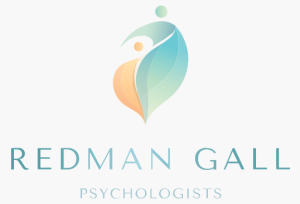Understanding Rejection Sensitive Dysphoria (RSD) in ADHD: Symptoms, Origins, and Management Strategies
Rejection Sensitive Dysphoria (RSD) is a lesser-known but significant aspect of Attention-Deficit/Hyperactivity Disorder (ADHD). This intense emotional response to perceived or actual rejection can profoundly affect the lives of those with ADHD. In this article, we’ll explore Rejection Sensitive Dysphoria in ADHD, its symptoms, and strategies for managing this challenging aspect of the disorder.
What is Rejection Sensitive Dysphoria in ADHD?
Rejection Sensitive Dysphoria in ADHD is an extreme emotional sensitivity and pain triggered by the perception of being rejected, criticized, or falling short of expectations. While RSD is not officially recognized in the DSM-5, it is increasingly acknowledged by ADHD experts as a common experience among individuals with ADHD.
Key Symptoms of Rejection Sensitive Dysphoria in ADHD
Recognising the symptoms of Rejection Sensitive Dysphoria in ADHD is crucial for effective management:
1.Intense emotional pain in response to perceived rejection.
2.Extreme anxiety about potential criticism.
3.Avoidance of social situations or new experiences.
4.People-pleasing behaviors.
5.Sudden outbursts of anger or sadness.
6.Persistent negative self-talk.
7.Difficulty in relationships due to fear of rejection.
The Origins and Development of Rejection Sensitive Dysphoria in ADHD
Understanding how RSD develops in individuals with ADHD is crucial for both recognition and management. Several factors contribute to the formation of RSD:
1. Neurobiological Factors:
•ADHD is associated with differences in brain structure and function, particularly in areas responsible for emotional regulation.
•The same neural pathways affected by ADHD may contribute to the intense emotional reactions characteristic of RSD.
•Imbalances in neurotransmitters like dopamine and norepinephrine, which are implicated in ADHD, may also play a role in the development of RSD.
2. Repeated Negative Experiences:
•Individuals with ADHD often face more frequent criticism, correction, and social rejection from an early age due to ADHD-related behaviors.
•These repeated experiences may lead to a heightened sensitivity to perceived rejection over time.
3. Emotional Dysregulation:
•ADHD is often accompanied by difficulties in emotional regulation, making individuals more susceptible to intense reactions to perceived rejection.
4. Cognitive Factors:
•The tendency for individuals with ADHD to hyperfocus may extend to rumination on negative social experiences, leading to an overemphasis on negative social cues and misinterpretation of neutral situations.
5. Environmental Influences:
•Parenting styles, school experiences, and peer interactions can all influence the development of RSD.
•Highly critical or invalidating environments may exacerbate the tendency towards rejection sensitivity.
6. Genetic Predisposition:
•Some researchers suggest a genetic component to RSD, given its prevalence among individuals with ADHD. However, more research is needed to confirm any genetic links.
7. Adaptive Response:
•Some theorists propose that RSD may have developed as an adaptive response to protect against social exclusion, a critical factor for survival in evolutionary terms.
8. Comorbid Conditions:
•The presence of conditions like anxiety or depression, often co-occurring with ADHD, may contribute to the development or intensity of RSD.
The Impact of Rejection Sensitive Dysphoria on Individuals with ADHD
Rejection Sensitive Dysphoria can significantly impact various aspects of life for those with ADHD:
•Social Relationships: Fear of rejection may lead to social isolation or difficulty maintaining friendships.
•Romantic Partnerships: RSD can strain intimate relationships due to misinterpretation of a partner’s actions or words.
•Professional Life: Work performance may suffer due to fear of criticism or avoidance of challenging tasks.
•Self-Esteem: Constant fear of rejection can erode self-confidence and self-worth.
Coping Strategies for Rejection Sensitive Dysphoria in ADHD
Managing Rejection Sensitive Dysphoria in ADHD requires a multi-faceted approach. Here are some strategies that can help:
1. Cognitive Behavioural Therapy (CBT): Learn to identify and challenge negative thought patterns.
2. Mindfulness Practices: Develop awareness of emotions without judgment.
3. Communication Skills: Improve the ability to express feelings and needs effectively.
4. Self-Compassion: Cultivate a kind and understanding attitude toward oneself.
5. Stress Management: Implement techniques like deep breathing or progressive muscle relaxation.
Treatment Options for Rejection Sensitive Dysphoria in ADHD
While there’s no specific medication for RSD, some treatments can help manage symptoms:
1. ADHD Medications: Stimulants or non-stimulants may help regulate emotions.
2. Alpha-2 Agonists: Medications like guanfacine or clonidine can assist with emotional regulation.
3. Antidepressants: In some cases, SSRIs may be prescribed to manage anxiety and depression associated with RSD.
The Importance of Professional Support
If you suspect you’re experiencing Rejection Sensitive Dysphoria in ADHD, it’s crucial to seek help from a mental health professional experienced in ADHD, such as the Redman Gall Psychologists clinic. They can provide an accurate diagnosis and develop a tailored treatment plan.
Conclusion
Rejection Sensitive Dysphoria is a challenging aspect of ADHD that can significantly impact an individual’s quality of life. By understanding RSD and implementing appropriate coping strategies and treatments, those with ADHD can better manage their emotional responses and improve their overall well-being.
Remember, while Rejection Sensitive Dysphoria can be overwhelming, with proper support and management strategies, individuals with ADHD can learn to navigate these intense emotions and lead fulfilling lives.



